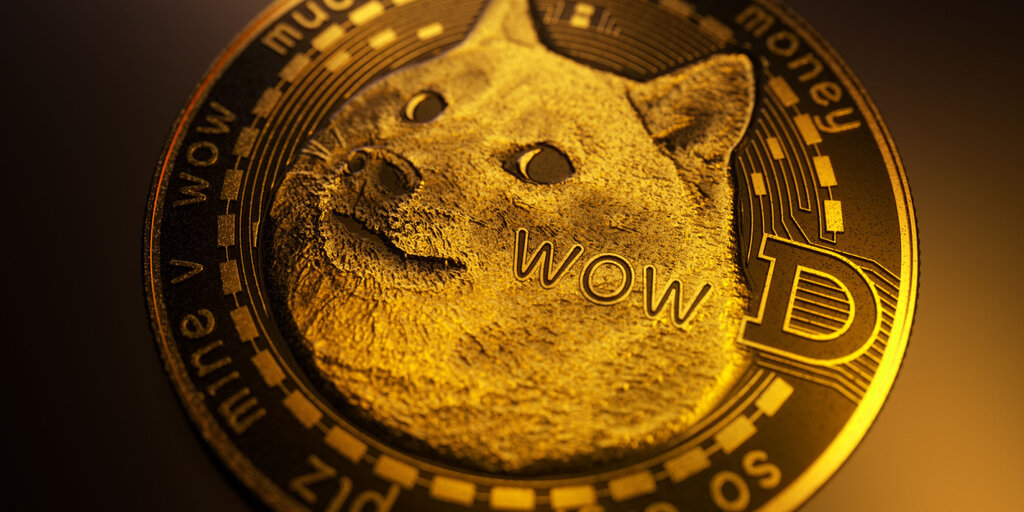GOAT Network, a layer 2 Bitcoin scaling project, announced on Wednesday that users will soon be able to stake Dogecoin (DOGE) to support the security of its upcoming network, offering crypto rewards in return.
Users will be able to accumulate rewards in the form of Bitcoin, which is used to pay transaction fees on GOAT Network, as well as GOAT Network’s intended token, said Kevin Liu, the project’s lead contributor and Métis co-founder. Decrypt in an interview.
“To secure the network, we need to stake certain tokens,” Liu said. “Bitcoin is a natural selection, but our model supports multiple assets.”
The project aims to address Bitcoin’s scalability and yield challenges, but faces questions about its technical feasibility and promises of sustainable yields.
GOAT Network’s decision to onboard Dogecoin was part of a months-long process driven by its overarching mission for crypto’s preeminent asset: to provide a sustainable return on Bitcoin by leveraging it to ensure network security, a Liu said.
Liu claimed that GOAT Network would allow users to start locking up their Dogecoin in early December during a so-called pre-mining phase.
A GOAT Network spokesperson then clarified: Decrypt that the project will begin accepting assets from potential delegates on December 2 via Bitcoin and Binance’s BNB chain. This will come with a “30% mining rewards rate,” the spokesperson added.
While there are countless projects experimenting with decentralized finance (DeFi) solutions in the Bitcoin space, GOAT Network claims that its decentralized sequencer model is unique.
In short, the project claims that its process of organizing, aggregating and executing transactions on the GOAT network is not subject to the control of a centralized entity.
“Instead of the chain’s governing foundation accumulating all operational control and revenue, this model allows for shared control among multiple individuals and entities,” according to a press release.
As proof-of-work networks, Bitcoin and Dogecoin do not use their respective assets to secure the network and validate transactions. Instead, each network relies on power-hungry machines that constantly perform complex calculations to make them work.
Liu said the inclusion of Dogecoin as an asset that can be delegated to the yet-to-be-launched network was driven by Dogecoin’s decentralized nature and its $59 billion valuation.
At the same time, Liu acknowledged that tech CEO Elon Musk contributed to a surge in Dogecoin’s popularity thanks to social networks and a proposed government agency.
When GOAT Network was unveiled this spring, the project claimed that it had commitments of 5,000 Bitcoin from institutions that would operate GOAT Network nodes in a press release. The release also claims that GOAT Network will launch with a “leading” decentralized exchange, among other decentralized lending and staking applications.
Prior to GOAT Network, Liu co-founded the Ethereum layer 2 scaling solution, Metis. According to ChallengeLlamaMetis has approximately $60 million in assets locked in smart contracts.
Although it will take time to see how GOAT Network’s debut plays out this year, the project is eager to leverage Dogecoin holders as a source of tokens to secure its network. At the same time, it promises income and tokens that have not yet been earned.
Edited by Sébastien Sinclair
Daily debriefing Newsletter
Start each day with the biggest news stories of the day, plus original features, a podcast, videos and more.




